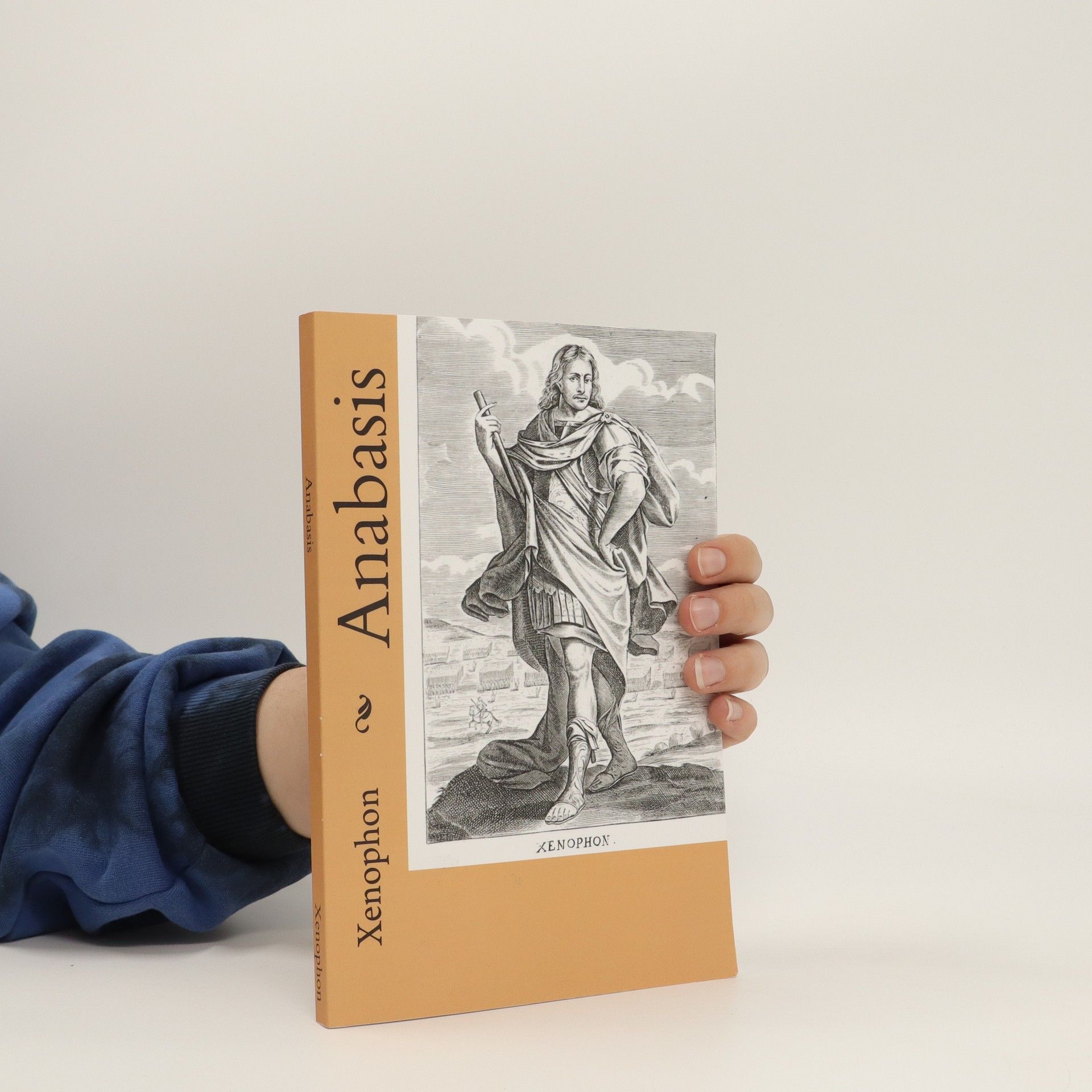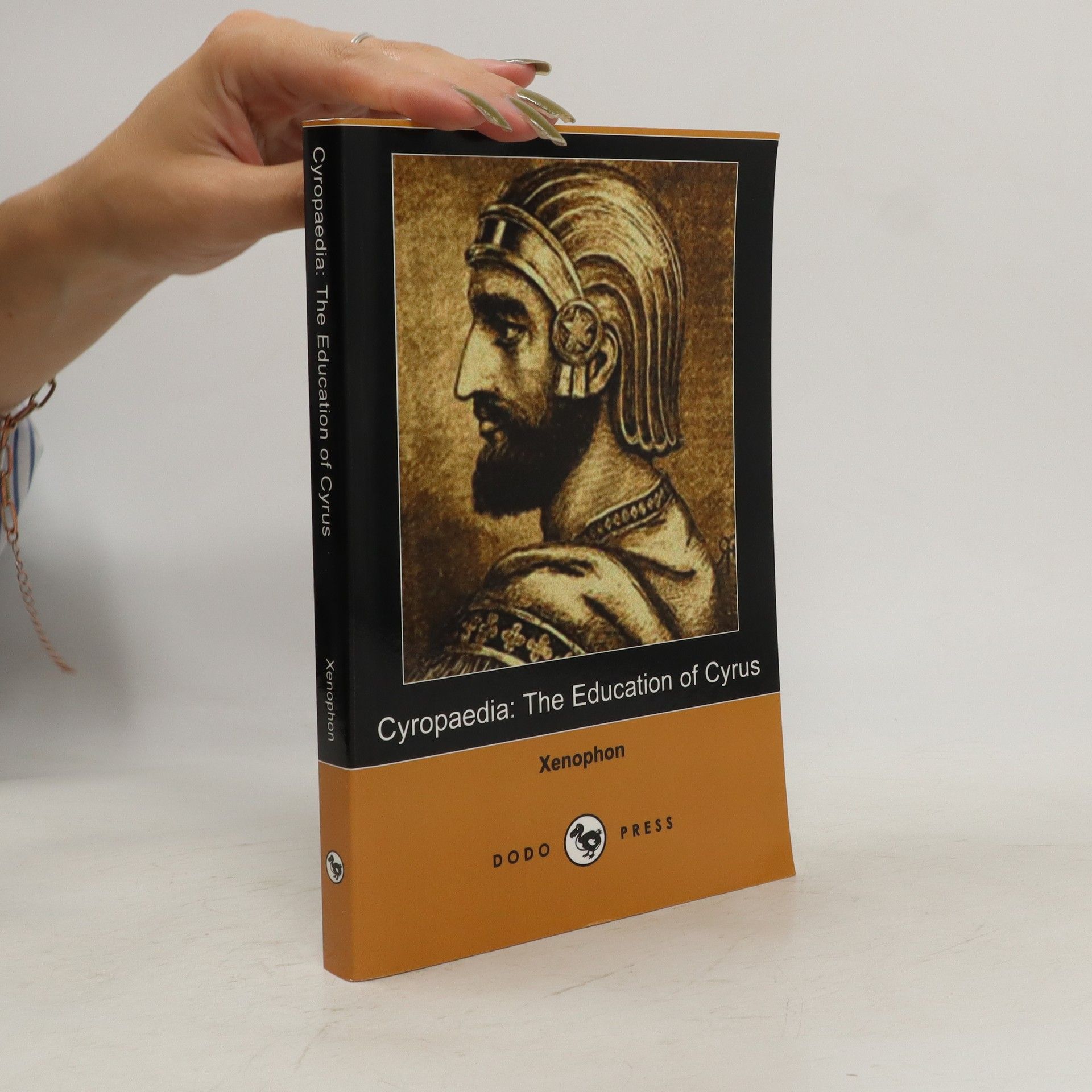Sokratův žák zachycuje svého mistra jako člověka, který v přátelském posezení u vína po skončené hostině je iniciátorem vtipných hovorů a diskusí o mezilidských vztazích, přičemž nikdy nezkazí zábavu.
Xenophon Knihy
Xenofón, současník a obdivovatel Sókratův, byl významným autorem starověkého Řecka. Jeho díla pokrývají široké spektrum témat, od detailních historických záznamů své doby až po zachycení Sókrata a života v antickém Řecku. Xenofón se vyznačoval jasným a přístupným stylem, který osvětloval politické, vojenské a filozofické aspekty své doby. Čtenáři v jeho spisech najdou cenný vhled do myšlení a kultury klasického Řecka.






The Economist
A Talk about Profitable Estate Management and A Treatise on the Science of the Household in the form of a Dialogue
- 94 stránek
- 4 hodiny čtení
Born in 431 B.C., Xenophon was an Athenian philosopher and historian, recognized as a pupil of Socrates. His works provide valuable insights into ancient Greek philosophy, history, and military strategy, reflecting his diverse experiences and perspectives. Through his writings, he explores themes of leadership, ethics, and the complexities of human nature, contributing significantly to the understanding of Socratic thought and the historical context of his time.
Xenophon's Memorabilia and Apology provide a passionate defence of Socrates against the charges brought against him that lead to his execution. The two texts together provide a moving account of what happened immediately before, during, and after his trial.
Xenophon's Cyrus the Great : the arts of leadership and war
- 320 stránek
- 12 hodin čtení
Twenty-five hundred years ago Cyrus, a great Persian leader of wisdom and virtue, created the Persian Empire, conquered Babylon, freed forty thousand Jews from captivity, wrote mankind's first human rights charter, and ruled over those he had defeated with respect and benevolence. The Iranians came to regard Cyrus as "The Father," the Babylonians as "The Liberator," and the Jews as "The Anointed of the Lord." The Greeks called him "The Law Giver," and a century after Cyrus's death, an admiring Xenophon of Athens wrote an epic account of Cyrus's many leadership principles at war and at peace. By freshening the voice and style that Xenophon ascribed to Cyrus, [the author] has fashioned a more intimate Cyrus. A new generation of readers, including executives, managers, and military officers, can now learn from Cyrus's leaderships and wisdom in Xenophon's narrative.--Back cover of book.
Cyropaedia
- 263 stránek
- 10 hodin čtení
Xenophon (431-355 BC), son of Gryllus, of the deme Erchia of Athens, was a soldier, mercenary and an admirer of Socrates. He is known for his writings on the history of his own times, the sayings of Socrates, and the life of Greece. He participated in the expedition led by Cyrus the Younger against his older brother, the emperor Artaxerxes II of Persia, in 401 BC. His record of the entire expedition against the Persians and the journey home was titled Anabasis (The Expedition or The March Up Country). He was later exiled from Athens, most likely because he fought under the Spartan king Agesilaus against Athens at Coronea. The Spartans gave him property at Scillus, near Olympia in Elis, where he composed the Anabasis. His writings are often read by beginning students of the Greek language. His Hellenica is a major primary source for events in Greece from 411 to 362 BC, and his Socratic writings, preserved complete, are the only surviving representatives of the genre of Sokratikoi logoi other than the dialogues of Plato.
Anabasis
- 208 stránek
- 8 hodin čtení
Anabasis is the most famous work, in seven books, of the Greek professional soldier and writer Xenophon. The journey it narrates is his best known accomplishment and "one of the great adventures in human history," as Will Durant expressed the common assessment.
Xenophon's experiences as a soldier and mercenary during the expedition against Persia in 401 BC provide a vivid account of his journey and the challenges faced by his fellow Greeks. His work, Anabasis, details not only the military campaign but also the subsequent retreat home, showcasing his insights into leadership and survival. Exiled from Athens for his allegiance to Sparta, he found refuge in Scillus, where he penned this significant historical narrative, blending personal reflection with broader themes of loyalty and the complexities of Greek politics.
The Art of Horsemanship
- 208 stránek
- 8 hodin čtení
This is a public domain work of Morris H. Morgan's 1893 translation.
After the execution of Socrates in 399 BC, a number of his followers wrote dialogues featuring him as the protagonist and, in so doing, transformed the great philosopher into a legendary figure. This title offers insights into the Socratic world and into the intellectual atmosphere and life of ancient Greece. It reveals much about this man.
Estate Management and Symposium
- 160 stránek
- 6 hodin čtení
Xenophon recounted several Socratic dialogues which included his Symposium and Oeconomicus and both are concerned with Athenian private life. They are literary creations that reveal Xenophon as a skilled literary artist, an innovative thinker, and far from merely reflecting the conventional thinking of the world around him.
